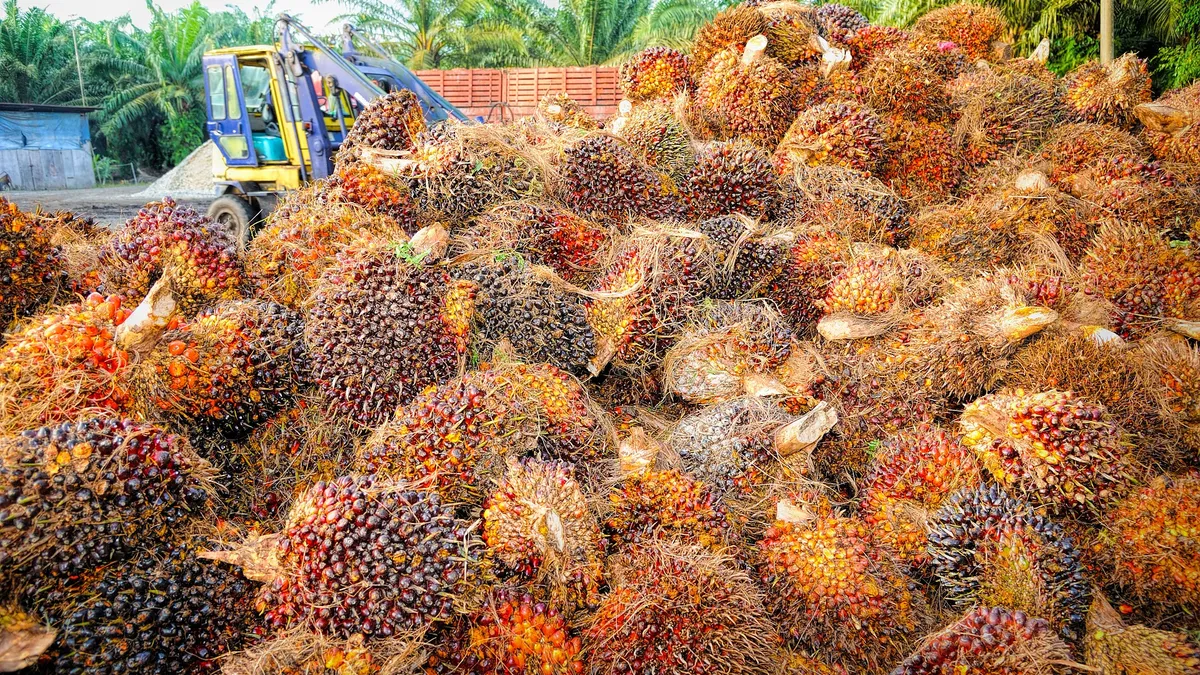Dive Brief:
- Nestlé is partnering with Sime Darby Plantation on a "helpline" project to eliminate human and labor rights abuses in their shared palm oil supply chain, according to a company press release.
- The helpline, co-developed by business risk and sustainability solutions provider ELEVATE and Responsible Business Alliance, will give workers the ability to report on working conditions, recruitment, safety and other labor issues.
- Issues will be followed up and resolved by clear protocols. "We are working alongside other stakeholders, including suppliers, and we believe these ongoing efforts will help improve the lives of those affected by unacceptable practices," Magdi Batato, Nestlé Executive Vice President and Head of Operations, said in the press release.
Dive Insight:
Nestlé has been active in working to combat issues within the palm oil supply chain for some time but issues persist.
In addition to the helpline plan, the food giant took part in a cross-industry collaboration on human and labor rights in the palm oil supply chain. Along with other members of the Consumer Goods Forum (CGF), it commissioned a research report, published Nov. 6 by the Fair Labor Association. The report highlighted the need for companies to ensure workers have access to functioning grievance mechanisms.
Nestlé also has developed its own action plan in regards to sustainable palm oil production, promising to be 100% responsibly sourced by 2020. Other key elements of the plan include not using palm oil from areas cleared of natural forests after Dec. 31, 2015; respecting local and indigenous communities; protecting high carbon stock lands and peatlands, and complying with the principles and criteria of the Roundtable on Sustainable Palm Oil (RSPO), the industry-wide certification body that promotes the growth and use of sustainable palm oil products.
Palm oil is used in food products, detergents, cosmetics and, to a small extent, biofuel, as it offers a far greater yield at a lower cost of production than other vegetable oils. In fact, according to Statista, 69.6 million metric tons of palm oil were produced in 2017 and 2018.
However, the industry has been under fire for many years with critics such as Amnesty International, Greenpeace and the World Wildlife Fund (WWF) citing deforestation, habitat degradation, climate change, animal cruelty and indigenous rights abuses in the countries where it is produced, because the land and forests must be cleared for the development of oil palm plantations.
According to the World Wildlife Fund, "large-scale deforestation is pushing many species to extinction, and findings show that if nothing changes species like the orangutan could become extinct in the wild within the next 5-10 years, and Sumatran tigers less than 3 years."












